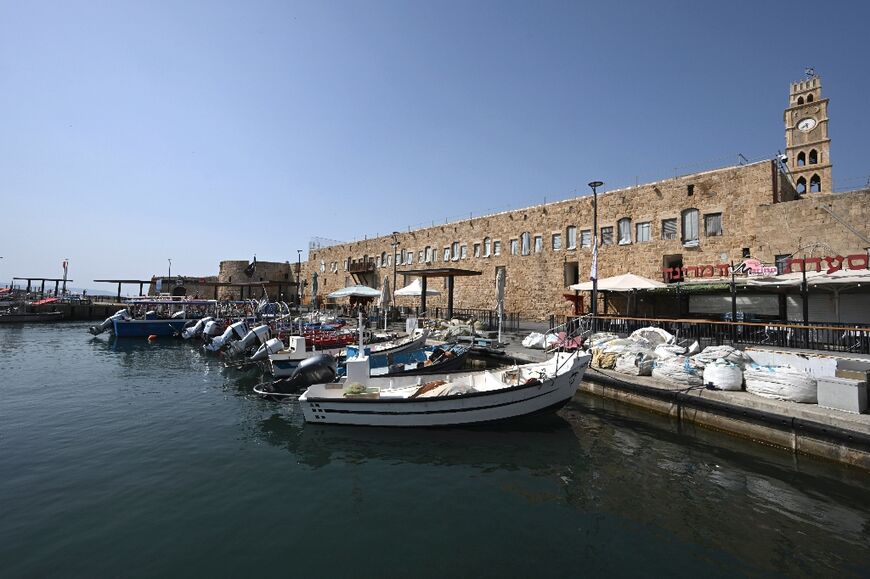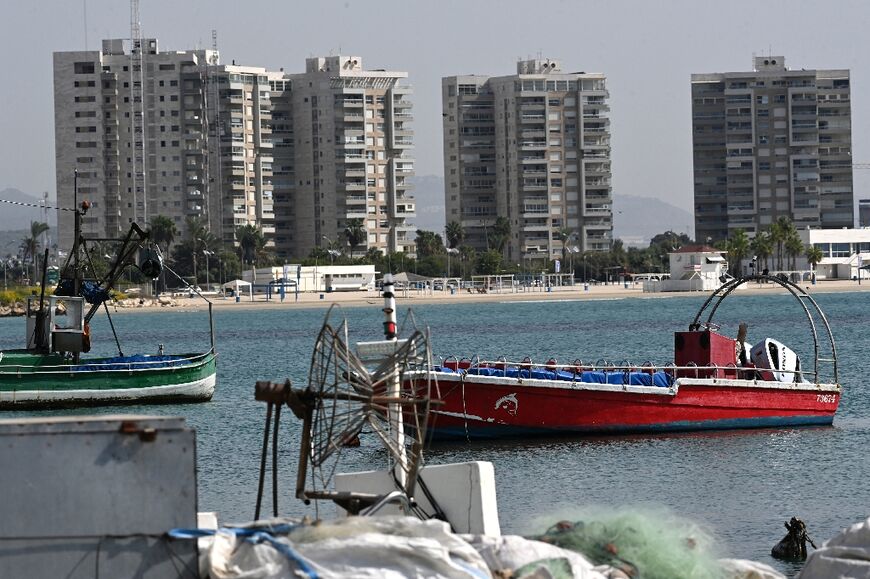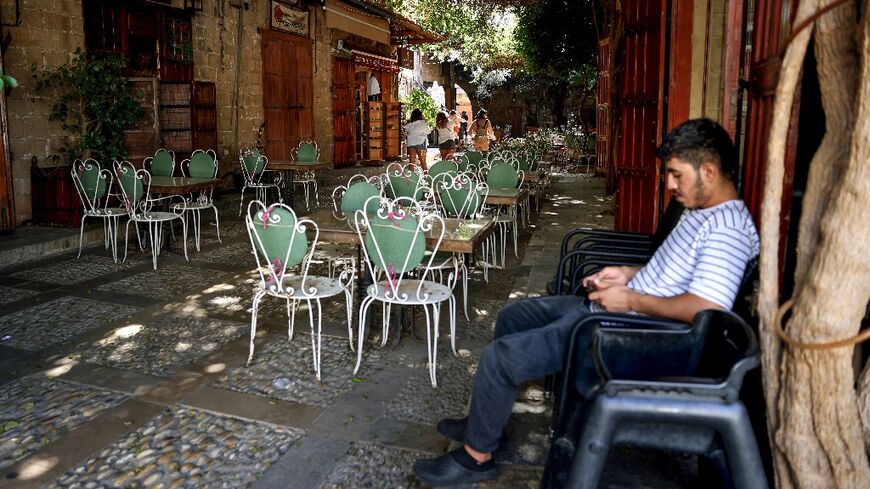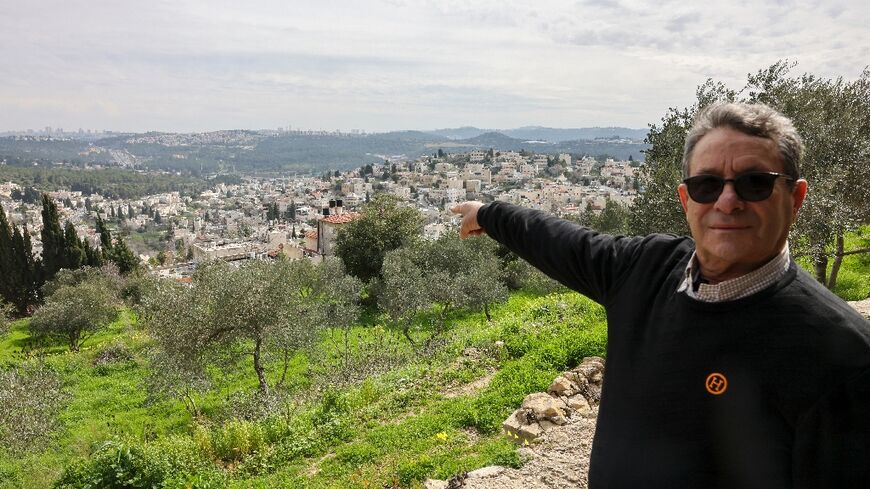War tests Jewish-Arab ties in north Israel town
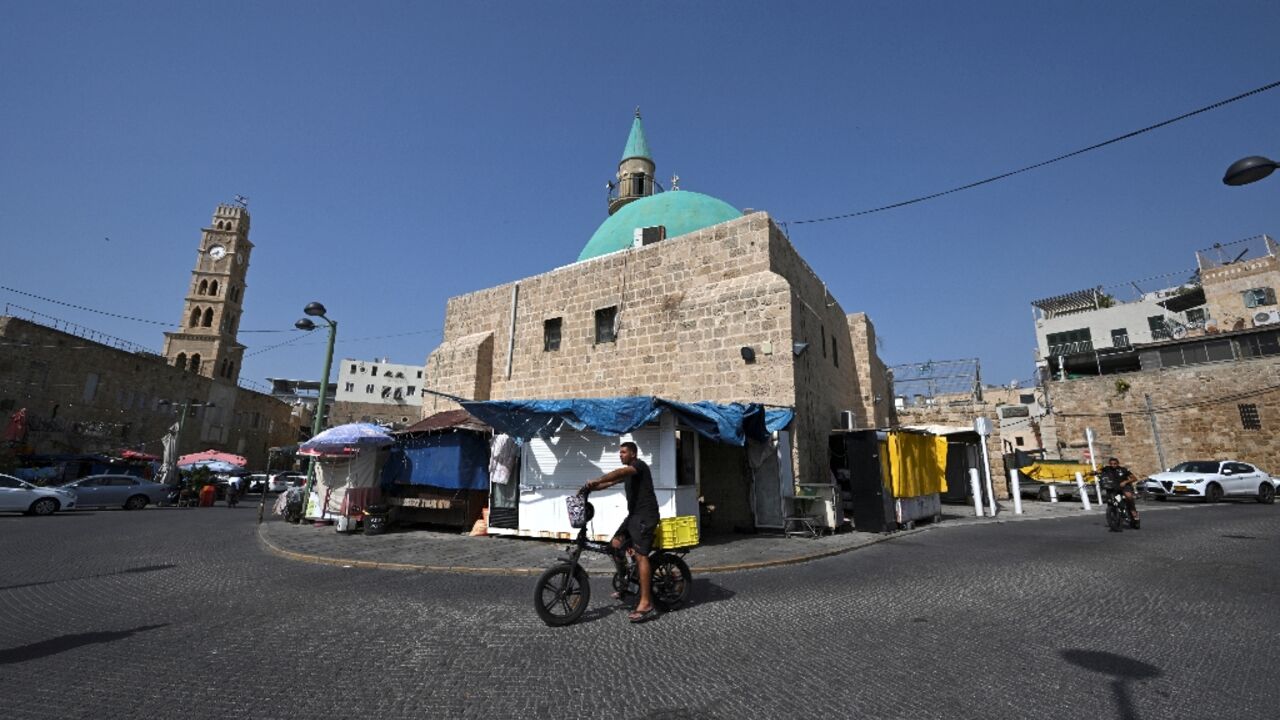
With schools and businesses shut, the streets were unusually quiet in Acre, an Israeli town home to Jewish and Arab communities hoping their fragile yet time-honoured ties survive the latest war.
When Israel and Palestinian armed group Hamas last fought in 2021, violence spilled over into towns like Acre, shared by both Jewish and Arab residents, with bouts of rioting resulting in deaths.
In Acre, a placid town of some 50,000 inhabitants along Israel's northern Mediterranean coast, a joint Jewish-Arab theatre and a restaurant that long served as a symbol of coexistence were both set ablaze during the 2021 melee.
During more than two weeks since the latest war erupted on October 7, triggered by a bloody Hamas assault on Israeli soil near the border of the blockaded Gaza Strip, Uri Jeremias has kept his iconic eatery open -- but it has remained largely deserted.
Jeremias, who earned a reputation for indiscriminate hiring of Arabs and Jews at his Uri Buri restaurant, told AFP it was "very important to keep the team together. We've been open for 35 years, like a family."
The arson attacks that two years ago had left his business badly damaged were not "against me as a person but against my ideas" of bringing Jews and Arabs "together", Jeremias said.
For Jeremias, a 79-year-old Jewish man, his work "to close the gaps" in the divided Israeli society "annoyed them".
Members of Israel's Arab minority, many of whom identify as Palestinians, make up around 20 percent of the country's population.
Despite being Israeli citizens, human rights organisations frequently highlight the regular discrimination faced by Arab communities -- the descendants of Palestinians who remained on their land following the 1948 war that coincided with Israel's foundation and resulted in mass displacement.
Jeremias said he was hopeful that violence would not resurface in Acre but admitted he had little idea where things were headed.
"Nobody knows, really, how it will develop."
- Northern unrest -
Sitting in front of his empty restaurant, 35-year-old Hamoudi Barghouti waits for business to pick up amid the sluggish torpor that has taken hold over Acre.
The day before Hamas militants stormed Israel's south, Barghouti recalled, "it was like a very nice Friday, a lot of people in the street."
"It was busy, we worked, people (from) all of the world" including Palestinians who had travelled from the occupied West Bank and "a lot of Jewish people" too, said the Arab restauranteur.
"We woke up on Saturday, and it was... a war."
In the early morning on October 7, Hamas fighters breached the barrier around Gaza and poured into Israel, where they mounted a house-by-house, community-by-community rampage that according to Israeli officials has left more than 1,400 people dead, most of them civilians killed on the first day of the raid.
Israel responded with a ferocious air strike campaign that the Hamas-controlled health ministry in Gaza said has killed more than 5,700 Palestinians.
As Gaza is pummelled from the sky, tens of thousands of soldiers have been amassing along the borders of the narrow Palestinian territory for a potential ground invasion.
In the north, clashes between Israel and Hamas's Lebanese ally Hezbollah have also spiked since October 7, triggering evacuations of communities just south of the frontier.
The now regular cross-border exchanges of fire are not far from Acre, located about 20 kilometres (12.5 miles) from the Lebanese border.
- No end in sight -
With tensions mounting, Israeli police chief Kobi Shabtai praised the "exemplary behaviour" of members of the Arab minority before an audience of parliamentarians.
"We've had virtually no friction," he said.
But that has done little to soothe locals' concerns.
On one of Acre's squares lined with cafes, only one establishment remained open. The owner, like many other residents approached by AFP, refused to comment on the surging violence.
Resident Ali Awabtawi was one of a few people sitting on the square despite the fear he described of "bombs" fired by Hezbollah.
"We all hope that peace will come some day, because nobody wants to live like that," Awabtawi told AFP.
The 46-year-old businessman said he could not "see any end" to the war, lamenting a "heavy" load for businesses and "our children" to bear.
"You don't know what's going to happen -- not tomorrow, not (the) next hour."
The alleyways of the old town were decorated with election posters plastered in preparation for municipal elections, initially set for October 31 but postponed due to the war.
One of them called for "unity" in both Arabic and Hebrew.
"Acre is above all else," read the poster.


